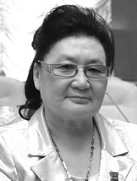Immanuel Kant’s ideas of physical education in context of modern physical education system
Фотографии:
ˑ:
Dr.Sc.Soc., Professor U.A. Vinokurova1
PhD A.Yu. Shachina1
PhD, Associate Professor S.V. Shachin1
1Churapcha State Institute of Physical Culture and Sports, Churapcha vil., Republic of Sakha (Yakutia)
2Murmansk Arctic State University, Murmansk
The study analyzes the actual situation in the sector based on the physical education values apprehension dialectics and the Immanuel Kant’s educational system to offer the system redesign driven by his critical studies and studies in anthropology and education science, with a special priority to the physical education aspects. The study explores the nature of freedom with a special emphasis on the reflective freedom as provided by the Kant’s critical philosophy and its modern conditionality. It should be noted that values do not play any role in the ethical domain, and this is the reason why physical culture shall not be considered a core value for the personality development process. At the same time, the important role of physical culture for a personality development process cannot be underestimated since it provides values for every life reality. A high priority shall be given to the valuation ability and contemplation ability development aspects rather than to the values sharing or cultivating goals. The efforts to improve own health and physical fitness are viewed as a goal and duty at the same time albeit focused on a higher-level objective. It is the personality self-identification that is declared as a key educational principle, with beliefs, hope and love considered the key educational categories. This logic effectively prevents any manipulation and instrumentalism with a human being and requires each athlete’s individuality to be respected above all rather than perceiving every individual mostly as an athlete.
Keywords: physical culture, values, valuation, contemplation ability, personality, freedom, categorical imperative, self-identification, ethical feel, sensational mindset for ethics, physical education.
References
- Adorno W. Theodor Problemy filosofii morali [Problems of Moral Philosophy]. Moscow: Respublika publ., 2000, 240 p.
- Jerelievskaya I.K. Ot kulta vsedozvolennosti k kulture samoogranicheniya [From cult of permissiveness to culture of self-restraint]. Moscow: Moscow City Government University of Management Moscow, 2008, 201 p.
- Gessen S.I. Osnovy pedagogiki: Vvedenie v prikladnuyu filosofiyu [Fundamentals of Pedagogy: Introduction to Applied Philosophy]. Moscow: Shkola press publ., 1995, 448 p.
- Zhvanetsky M. Razgovor ottsa s syinom. Imey sovest i delay, chto khochesh! [Father and son talk. Have shame and do what you want]. Moscow: E publ., 2017, 192 p.
- Kant I. Antropologiya s pragmaticheskoy tochki zreniya [Anthropology from a Pragmatic Point of View]. St. Petersburg: Nauka publ., 2002, 472 p.
- Kant I. Kritika prakticheskogo razuma [Critique of Practical Reason]. Col. in 4 vol. in Ger. and Rus. Vol. 3. Moscow: Moscow Philosophical Fund publ., 1997, pp. 277-733.
- Kant I. Metafizika nravov v dvukh chastyakh [Metaphysics of Morals in 2 Volumes]. Osnovy metafiziki nravstvennosti [Groundwork of the Metaphysics of Morals]. Moscow: Mysl publ., 1999, pp. 563-909.
- Kant I. Traktat o pedagogike. Traktaty i pisma [Essay on Pedagogy. Essays and letters]. Moscow: Nauka publ., 1980, pp. 445 – 504.
- Kant I. Osnovopolozheniya k metafizike nravov [Fundamental Principles of the Metaphysics of Morals]. Col. in 4 vol. in Ger. and Rus. Vol. 3. Moscow: Moscow Philosophical Fund publ., 1997, pp. 39-276.
- Churakova A.V. Dvigatelnaya kultura kak tsennost [Motor culture as a value]. Mater. Vseros. nauch.-prakt. konf. [Proc. res.-pract. conf.] April 26 - 27, 2017. Murmansk, 2017, pp. 67-71.
- Shachina A.Yu. Transtsendentalno-kriticheskaya pedagogika A. Pettselta [Transcendental-critical pedagogy of A. Petzelt]. Pedagogika, 2013, no. 5, pp. 120-126.
- Shachina A.Yu. Tsel i zadachi vospitaniya v filosofsko-pedagogicheskom tvorchestve I. Kanta [The aim and tasks of pedagogical science in I. Kant's philosophica and pedagogical works]. Pedagogika, 2013, no. 6,pp. 119-126.
- Court, Jürgen: Kants Beitrag zur Theorie und Praxis von Spiel und Sport: Untersuchungen am Verhältnis von Freiheit und Notwendigkeit. Dt. Sporthochschule., Diss., 1988. Sankt Augustin: Akademie-Verl. Richarz, 1989, 322 p.
- Fischer, Wolfgang: Immanuel Kant. In: Philosophen als Pädagogen: Wichtige Entwürfe klassischer Denker. Hrsg. von Wolfgang Fischer und Dieter-Jürgen Löwisch, Darmstadt: Wiss. Buchges., 1998, pp. 125-139.
- Heitger M. Bildung als Selbstbestimmung Hrsg. von Winfried Böhm und Volker Ladenthin. Paderborn; München; Wien; Zürich: Ferdinand Schöningh Verlag, 2004, 218 p.
- Heitger M. Systematische Pädagogik – Wozu? Hrsg. von Winfried Böhm und Volker Ladenthin. Paderborn; München; Wien; Zürich: Ferdinand Schöningh Verlag, 2003, 163 p.
- Honneth Axel: Das Recht der Freiheit: Grundriss einer demokratischen Sittlichkeit. Berlin: Suhrkamp, 2011, 628 p.
- Klemme Heiner F.: Praktische Gründe und moralische Motivation. Eine deontologische Perspektive. In: Moralische Motivation. Kant und Alternativen. Hrsg. von Heiner F. Klemme Manfred Kühn, Dieter Schöneker. Hamburg: Felix Meiner Verlag, 2006, pp. 113-153.
- Koch Lutz: Kants Revolutionen. In: Kant – Pädagogik und Politik. Hrsg. von Lutz Koch und Christian Schönherr. Würzburg: ERGON-Verlag, 2005, pp. 9-22.
- Niethammer, Arnolf: Kants Vorlesung über Pädagogik: Freiheit und Notwendigkeit in Erziehung und Entwicklung. Frankfurt a.M.: Peter D. Lang Verlag, 1980, 280 p.
- Spitzer Manfred: Selbstkontrolle: Warum tun wir oft nicht, was wir wollen? Original-Vorträge. CD. Berlin/Ulrich: Auditorium Netzwerk, 2011.



 Журнал "THEORY AND PRACTICE
Журнал "THEORY AND PRACTICE